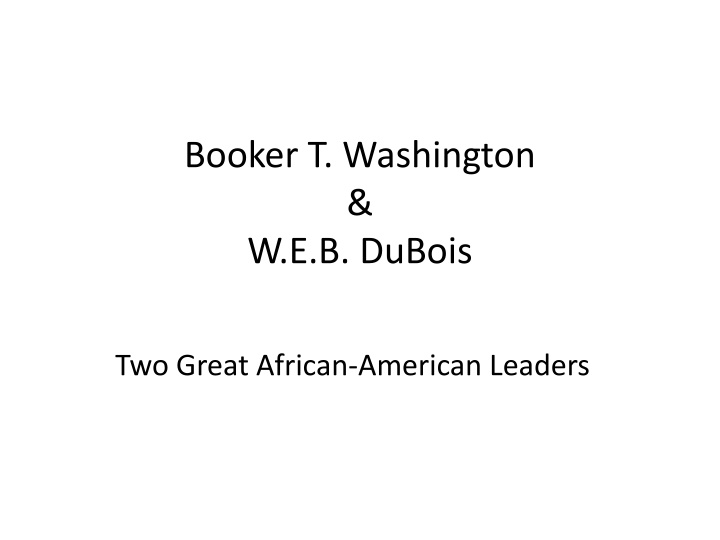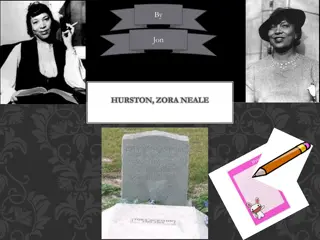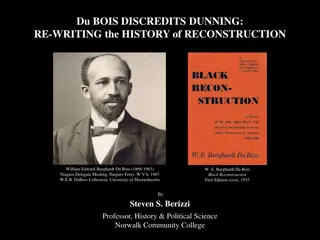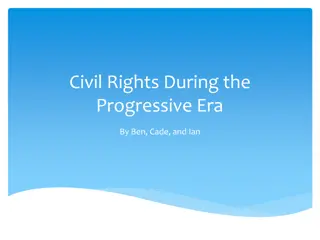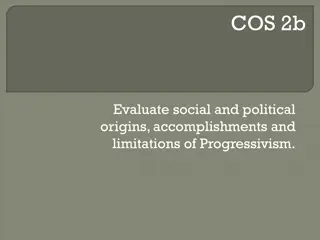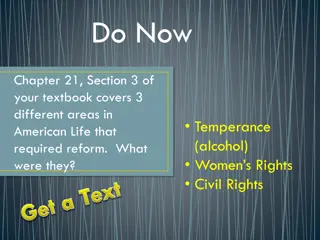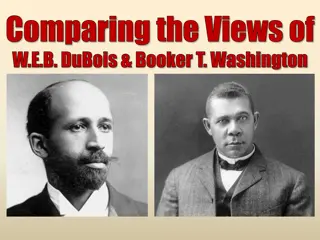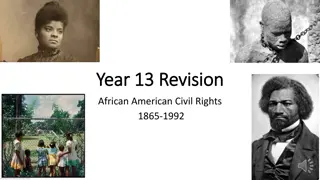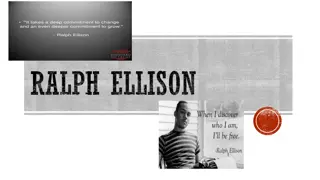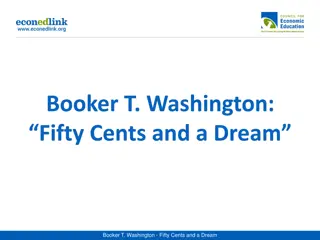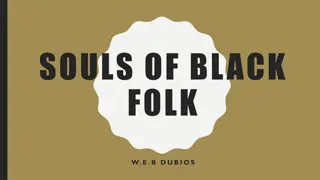African-American Leadership: Booker T. Washington vs. W.E.B. Du Bois Debate
Booker T. Washington and W.E.B. Du Bois were two influential African-American leaders with differing views on strategies for black social and economic progress in the United States. Washington believed in self-help, racial solidarity, and accommodation, focusing on education in crafts and industrial skills. Du Bois, on the other hand, advocated for political action, civil rights, and intellectual growth. Their debate shaped the pathways for African-American advancement post-Civil War.
Download Presentation

Please find below an Image/Link to download the presentation.
The content on the website is provided AS IS for your information and personal use only. It may not be sold, licensed, or shared on other websites without obtaining consent from the author.If you encounter any issues during the download, it is possible that the publisher has removed the file from their server.
You are allowed to download the files provided on this website for personal or commercial use, subject to the condition that they are used lawfully. All files are the property of their respective owners.
The content on the website is provided AS IS for your information and personal use only. It may not be sold, licensed, or shared on other websites without obtaining consent from the author.
E N D
Presentation Transcript
Booker T. Washington & W.E.B. DuBois Two Great African-American Leaders
W.E.B DuBois and Booker T. Washington Both influential in the years after the Civil War Both committed to improving life for blacks in the United States. However, they sharply disagreed on strategies for black social and economic progress.
Booker T. Washington He believed in: A philosophy of self-help, racial solidarity and accommodation That blacks should accept discrimination for the time being and concentrate on lifting themselves up through hard work and material gains. Education of blacks in the crafts, industrial and farming skills Cultivation of the virtues of patience and thrift. This would win the respect of whites and lead to African Americans being fully accepted as citizens and into all parts of society. Educator, reformer and the most influential black leader of his time (1856-1915)
W.E.B. Du Bois, Disagreed with Washington and that Washington's strategy would serve only to maintain white oppression. Du Bois advocated political action and a civil rights agenda (he helped found the NAACP). Also disagreed with Washington about education Preferred focusing on intellectual growth Creating wise men would be the best way to confront racial inequality. Social change could be accomplished by developing A small group of college- educated blacks he called "the Talented Tenth. A towering black intellectual, scholar, and political thinker (1868- 1963)
